Why 87% of Kids Tested Have Traces of Pesticides in Their Urine—And How to Reduce Pesticides in Children
This article may contain affiliate links (which basically means if you buy something from a link on my site, I get a small percentage kickback from it.) However it’s no extra cost to you and it simply helps support this blog. Thank you so much for being here! I so appreciate you and hope you enjoy reading my articles!
As moms, we're constantly juggling a million things, but our kids' health is always at the forefront of our minds. What if I told you that a shocking 87% of children tested have traces of pesticides in their urine? It's not just alarming—it's a call to action for all of us, mamas! Pesticides in children should NOT be a thing!
Let's dive into some eye-opening facts that might make you pause the next time you're reaching for that non-organic apple. As moms, we're always trying to do our best, but sometimes the odds feel stacked against us. Did you know that our little ones are exposed to pesticides 10-20 times more than we are, relative to their body weight? It's enough to make any mama's heart skip a beat.
And it doesn't stop there. Studies have shown that kids with higher levels of pesticide metabolites in their urine have a 70% increased risk of ADHD. Even more concerning, pesticide exposure during pregnancy and early childhood has been linked to a 2-3 fold increase in autism risk. These aren't just facts – they're real concerns that keep us up at night and represent REAL lives..our kiddos lives.
I know you can relate to the constant worry. There's the guilt that creeps in when we reach for those convenient, non-organic snacks because we're running late (again). Or the overwhelm that hits us in the grocery store, trying to decipher food labels while our toddler is having a meltdown in the cart. And let's not forget the frustration of dealing with picky eaters who'd rather go on a hunger strike than touch a vegetable. Through it all, there's that nagging fear that despite our best efforts, we might be unknowingly exposing our kids to harm.
But here's the thing, mama – you're not alone in this. We're all navigating this crazy journey together, trying to make the best choices for our families. So let's take a deep breath, support each other, and tackle this challenge one step at a time. Because our kids' health is worth it, and so is our peace of mind.
It's time to turn that worry into action. Together, we can make informed choices that protect our children's health and set them up for a thriving future.
Kid’s Health Consequences of Glyphosate and Long-term Exposure of Pesticides in Children
Let's talk about one of the most common pesticides found in our environment: glyphosate. This chemical is the active ingredient in many popular weed killers (like Round Up), and unfortunately, it's showing up in places we'd rather not see it - including our children's bodies. As a mom, I know how concerning this can be, so let's break it down together.
Scientists have been studying the effects of long-term exposure to pesticides like glyphosate, and the findings are quite worrying. They've discovered links between these chemicals and several health issues that can affect our kids as they grow. Here's what the research is telling us:
1. Glyphosate and Skin Issues: Have you noticed your little one struggling with mysterious rashes or eczema that just won't go away? It turns out, pesticide exposure might be playing a role in these pesky skin problems. Pesticides can mess with your kiddos gut microbiome and even hormones, which are all connected to skin health! It's just one more thing to add to our mom-worry list, isn't it?
2. Glyphosate and ADHD: We all joke about how our kids seem to have endless energy, but what if it's more than that? Studies show that higher levels of pesticides in our kids' bodies could increase their risk of ADHD by 70%.
3. Glyphosate and autism: As if pregnancy wasn't stressful enough, now we're learning that pesticide exposure during those nine months and early childhood could increase autism risk 2-3 times.
4. Glyphosate and Gut Issues: Ever feel like you're constantly dealing with tummy troubles in your house? Those pesticides might be messing with your kiddo's gut health, which we now know is super important for overall wellbeing. It's not just about upset stomachs - it could be impacting their immune system too.
5. Glyphosate and Chronic Health Issues in Kids: Long-term pesticide exposure has been linked to all sorts of issues that could affect our kids as they grow:
Hormone imbalances that might mess with their growth and development (as if puberty wasn't going to be fun enough, right?)
Weaker immune systems - because we definitely need more sick days and trips to the doctor's office in our lives (said no mom ever)
Problems with brain development and how they learn.
And the big C-word that we don't even want to think about - but there's some concern about increased cancer risks
I know, mama. It's a lot to take in, and you might be feeling overwhelmed right now. But here's the thing - knowledge is power. Now that we know about these risks, we can take steps to protect our little ones.
Remember, we're not aiming for perfection here (because let's face it, that's impossible in motherhood). It's all about making small, doable changes that can make a big difference.
Why Are We Seeing an Increase in Glyphosate Exposure?
Let's talk about why our kiddos are getting more exposed to pesticides these days. It's a bit overwhelming, I know, but understanding it can help us make better choices for our families.
First off, you know how we're always trying to buy the freshest produce for our little ones? Well, it turns out that a lot of the fruits and veggies we're picking up at the grocery store have been treated with more pesticides than ever before. Farmers are using these chemicals to grow enough food for everyone, but it means more of those pesticides end up on our plates.
And those "miracle" GMO crops we keep hearing about? They're actually designed to withstand heavy doses of weed killers. So while they're great at fighting off weeds, they're also introducing more chemicals into our food chain. It's like trading one problem for another, right?
Here's something that really hit home for me: even if we're not living on a farm, those pesticides can travel. They drift through the air from nearby fields and settle in our neighborhoods. It's crazy to think that what's happening on a farm miles away could be affecting our kids playing in the backyard.
And don't even get me started on our local parks and schools! I always thought these were safe havens for our little ones, but it turns out many of them use pesticides for lawn care. So while we're watching our kids have a blast on the playground, they might be picking up more than just grass stains.
I know it sounds scary, mama, but knowledge is power. Now that we know where these pesticides are coming from, we can start making small changes to protect our families.
Where's the Biggest Exposure of Pesticides for Kids?
Let's talk about where our kids are most likely to come into contact with pesticides. As moms, we're always trying to keep our little ones safe, but sometimes it feels like these chemicals are everywhere! Here are the main places we need to watch out for:
Food: This is a big one. Those conventionally grown fruits and veggies we're always trying to get our kids to eat? They often have pesticide residues on them. It's frustrating because we're trying to do the right thing by feeding them healthy foods, but we might be exposing them to chemicals at the same time.
Water: You'd think water would be safe, right? But pesticides can actually seep into our groundwater. So even when we're just trying to keep our kids hydrated, we might be giving them a dose of unwanted chemicals.
Air: This one really gets me. Even if we're not using pesticides ourselves, they can drift over from nearby farms or even from our neighbors treating their lawns. Our kids could be breathing in these chemicals just by playing outside.
Household products: We're trying to keep our homes clean and bug-free, but some cleaning products and insecticides contain harmful chemicals. It's like we can't win sometimes!
How to Reduce Your Child's Exposure to Pesticides
Now, let's talk about what we can do as parents to minimize our kids' exposure:
Choose organic when possible: Prioritize organic for the foods your family eats most often. I love ordering food off of Thrive Market. They have such a good selection of organic foods at an affordable price and it gets shipped right to my door (so I can avoid the grocery store runs with my kiddos!). You can get $40 off your first order when you use this link!
Wash produce thoroughly: Even if it's organic, give it a good wash to remove any residues. Here's a simple DIY produce wash that effectively removes pesticides:
Mix 1 part white vinegar with 3 parts water in a spray bottle
Spray your fruits and vegetables thoroughly
Let sit for 1-2 minutes, then rinse well under cool water
For leafy greens, soak in the mixture for 5-10 minutes, then rinse
This natural solution helps eliminate pesticide residues and bacteria, making your produce safer for your family.
Use the EWG's Dirty Dozen and Clean Fifteen lists: These lists can help you make informed choices when shopping for produce.
Filter your water: Use a high-quality water filter certified to remove pesticides. I personally love my Berkey water filter. It sits right on my counter top and I have it right by my sink so it's easy to fill up and it's a great affordable investment for the health benefits of drinking clean water!
Avoid pesticide use at home: Try natural pest control methods in your garden and for indoor pests. PLEASE AVOID ROUND UP (aka glyphosate)
Remove shoes at the door: This simple habit can significantly reduce the amount of pesticides tracked into your home.
Support pesticide-free public spaces: Advocate for your local parks and schools to use non-toxic lawn care methods.
The EWG's Dirty Dozen and Clean Fifteen
The Environmental Working Group (EWG) releases these lists annually to help consumers make informed choices:
Dirty Dozen (buy these organic when possible)
Strawberries
Spinach
Kale, collard and mustard greens
Nectarines
Apples
Grapes
Bell and hot peppers
Cherries
Peaches
Pears
Celery
Tomatoes
Clean Fifteen (lowest in pesticides)
Avocados
Sweet corn
Pineapple
Onions
Papaya
Sweet peas (frozen)
Asparagus
Honeydew melon
Kiwi
Cabbage
Mushrooms
Cantaloupe
Mangoes
Watermelon
Sweet potatoes
Remember, mamas, we're not aiming for perfection here. Every small step counts. By making informed choices and gradually implementing these changes, we can significantly reduce our children's exposure to harmful pesticides. It's about progress, not perfection, in our journey to raise healthy, thriving kids.
Let's empower each other to make these positive changes for our families and our communities. Together, we can create a healthier future for our children.
Join the Nourished Family Academy Course Today & Take Charge of Your Family Wellness!
You want the best for your family, but between the endless nutrition advice, confusing labels, and picky eaters, it’s easy to feel overwhelmed and stuck. You know how important it is to provide your kids with real, nourishing foods, but where do you even begin? Imagine feeling confident in every choice you make—knowing you’re giving your family the tools to grow, thrive, and avoid the health struggles that so many face today.
With the Nourished Family Academy Course, you’ll get step-by-step guidance, expert tips, and practical solutions to create a balanced, healthy lifestyle for your family. No more confusion or guilt around meals—just simple, effective strategies that work for busy moms like you, trying to support family wellness for now and for generations to come. Picture your mornings filled with easy, nutritious breakfasts and your evenings free from battles at the dinner table, knowing you’re setting the foundation for lifelong wellness for your kids.
Ready to make this change for your family? Click here to get on the waitlist or enroll now, and start your journey towards a healthier, happier home!
Bailey Petrucelli is a Women’s & Family Nutritionist and wellness advocate, passionate about helping moms and families take charge of their health. On her blog, The Peachy Nutritionist, she shares practical tips, empowering holistic wellness information, nutritious recipes, and real-life wellness strategies to empower moms to create a healthy and balanced lifestyle for their families.

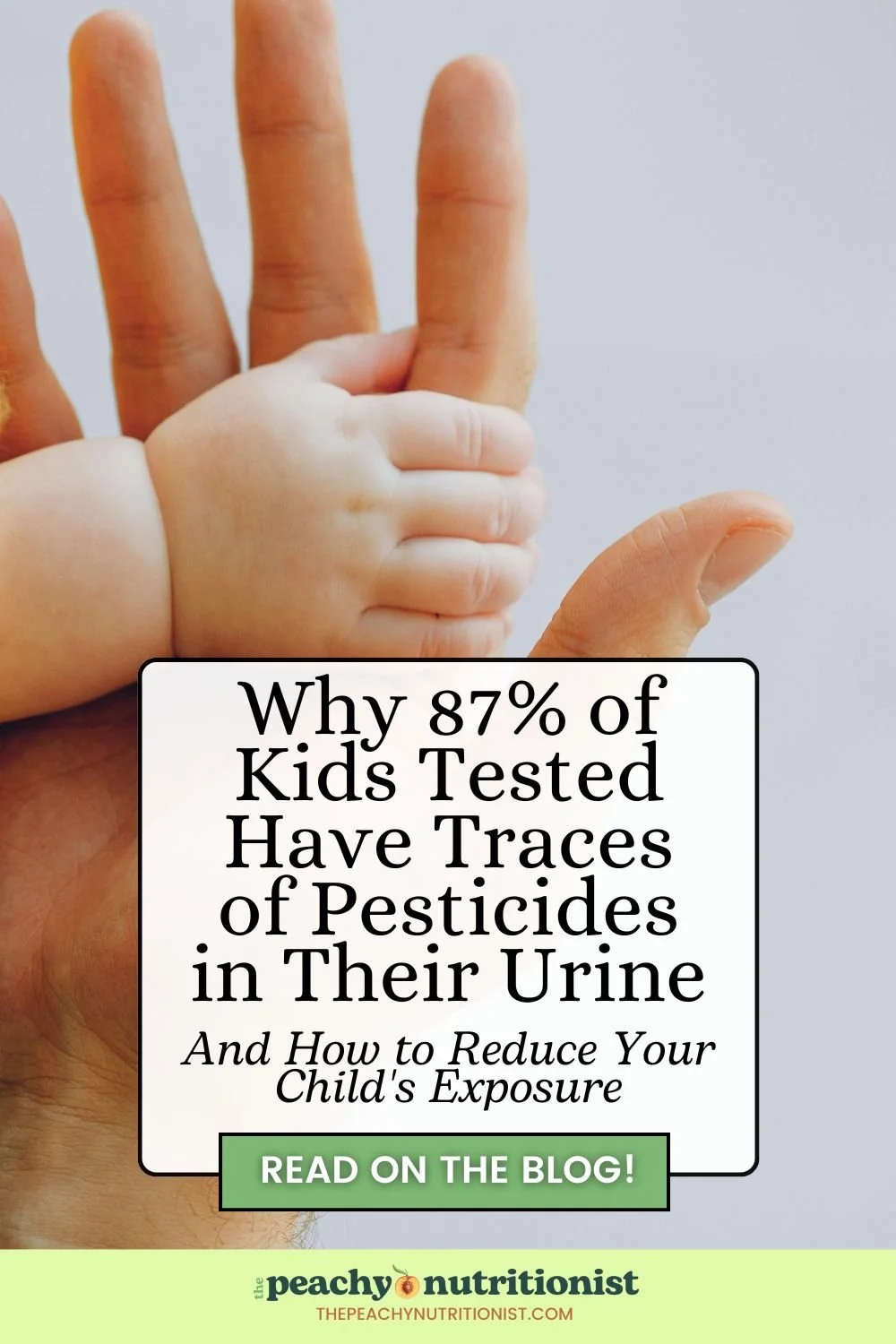
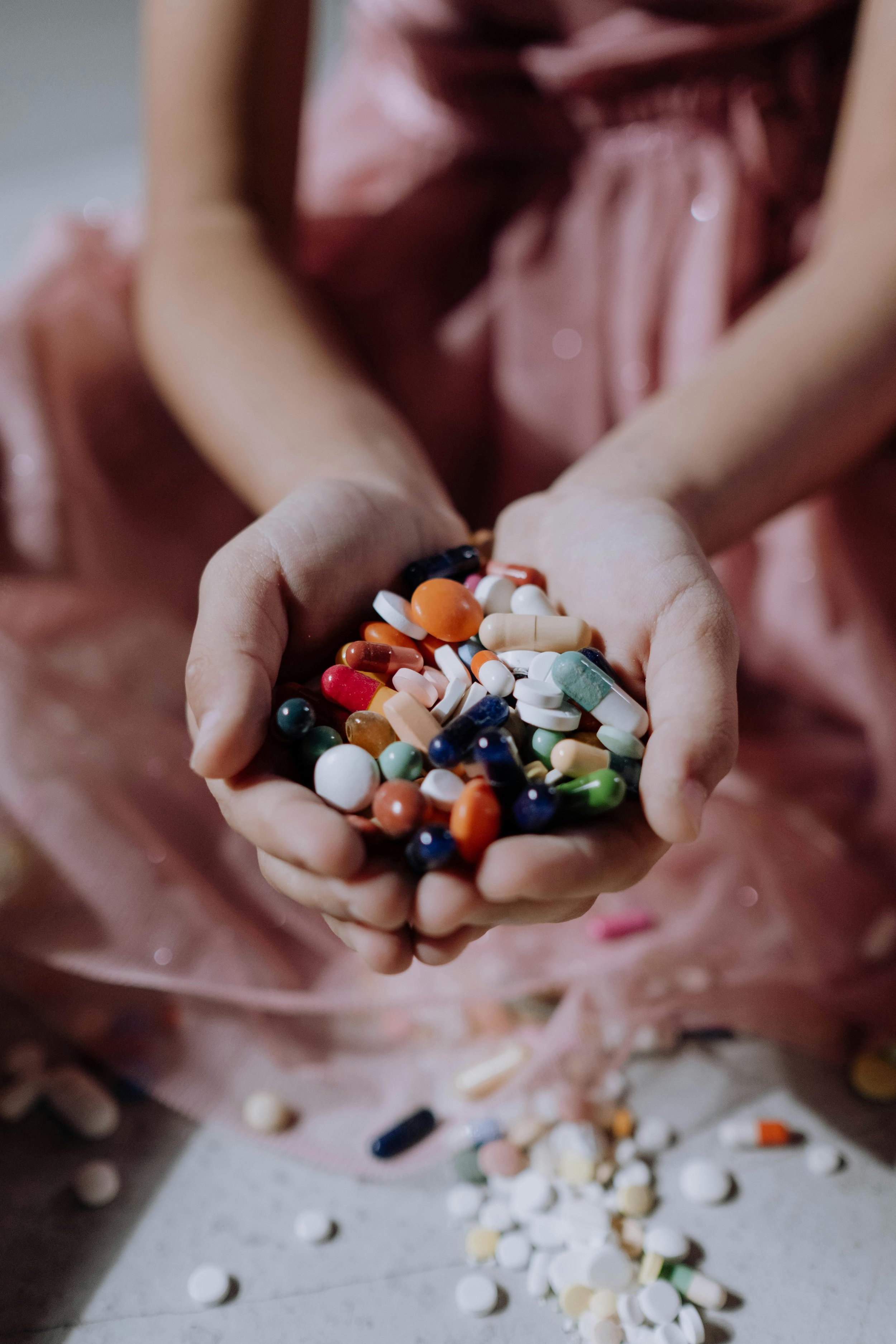









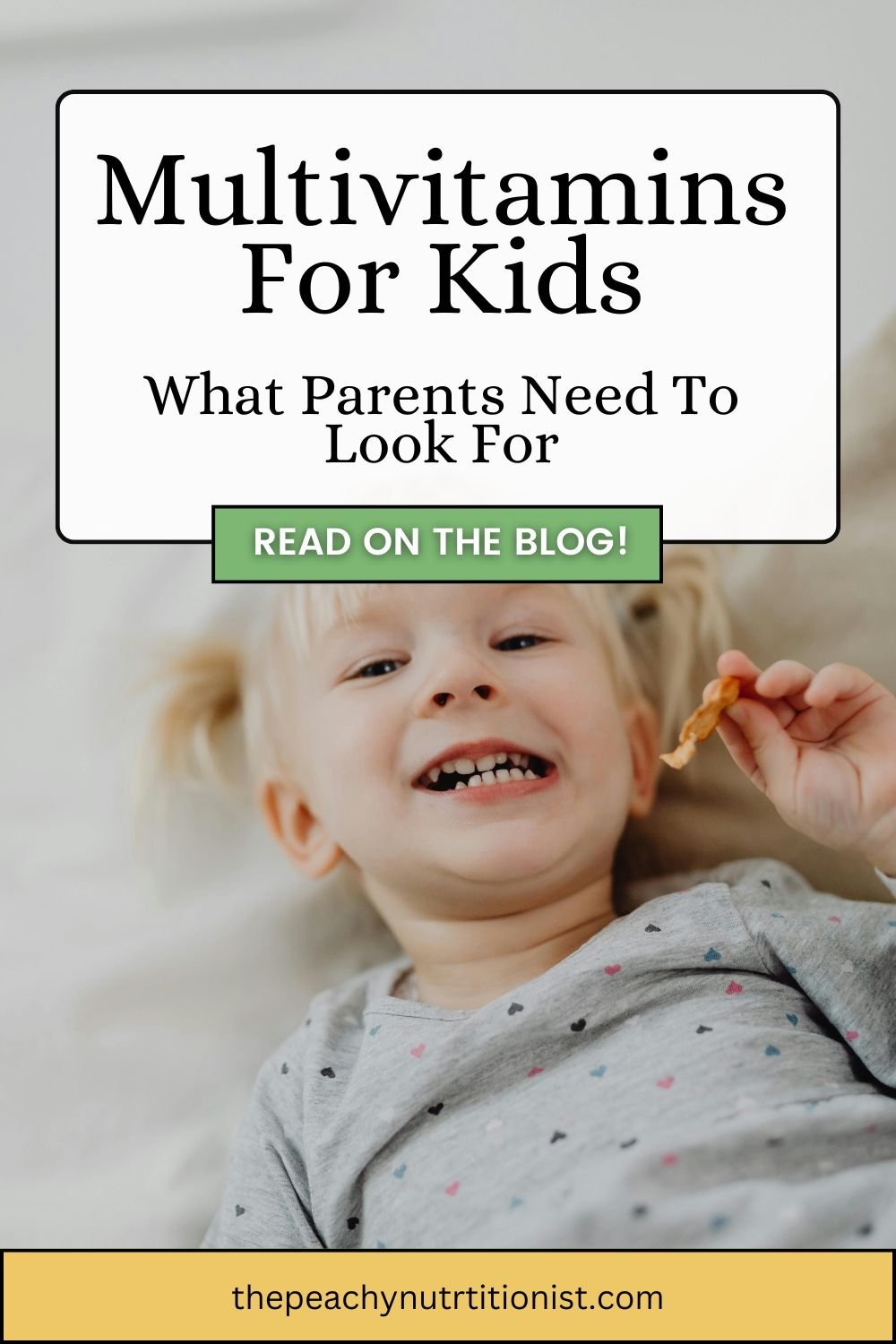











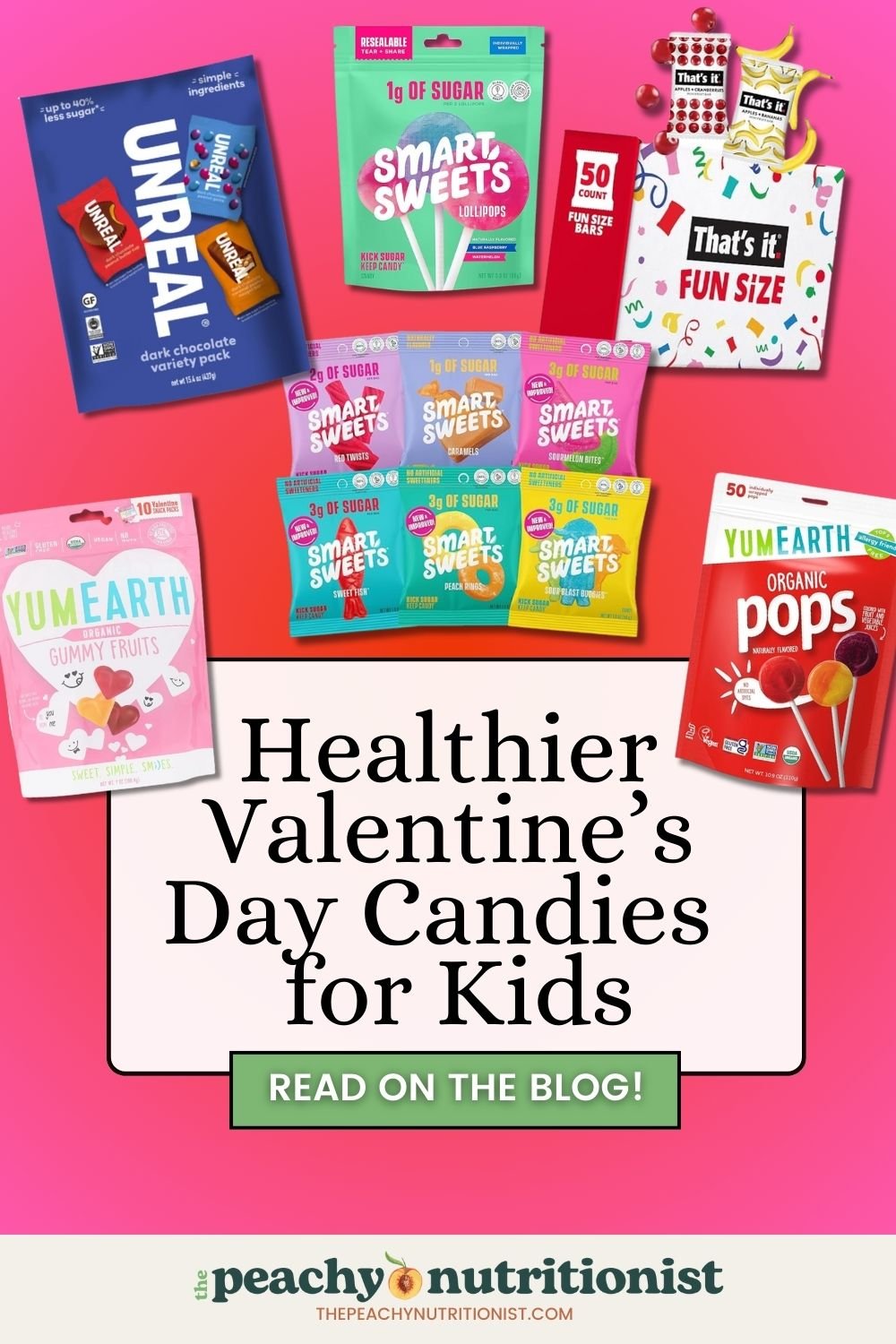
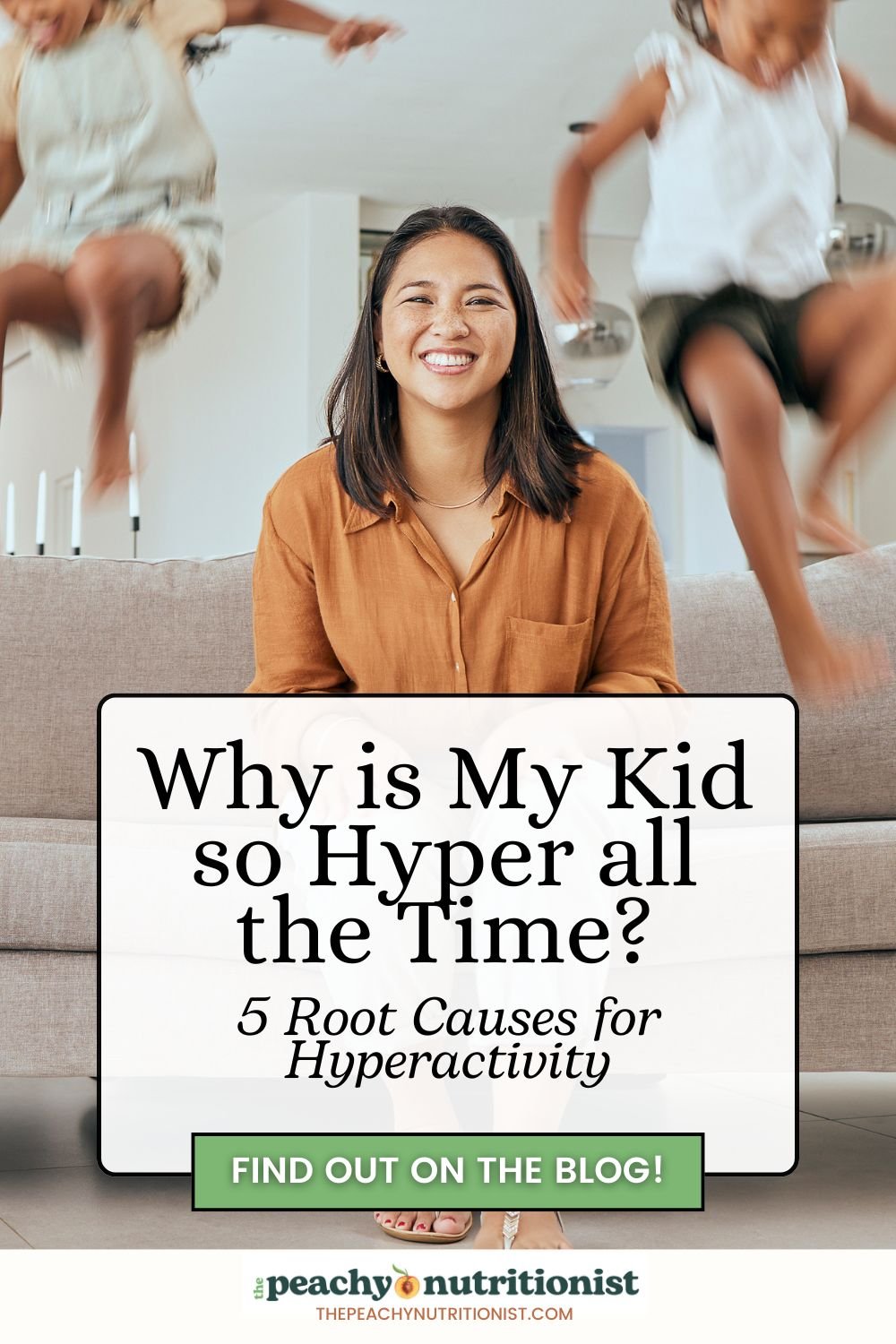

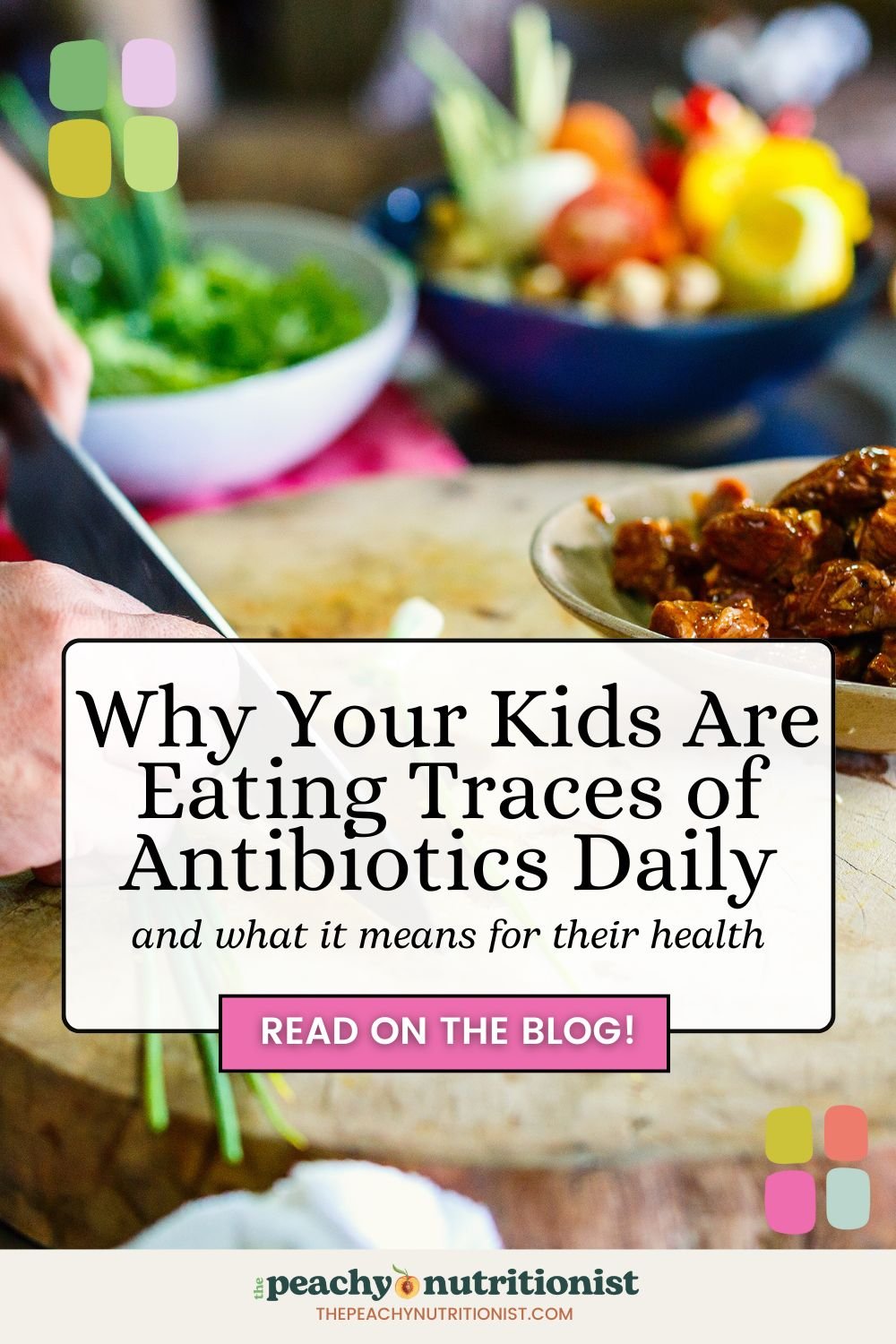
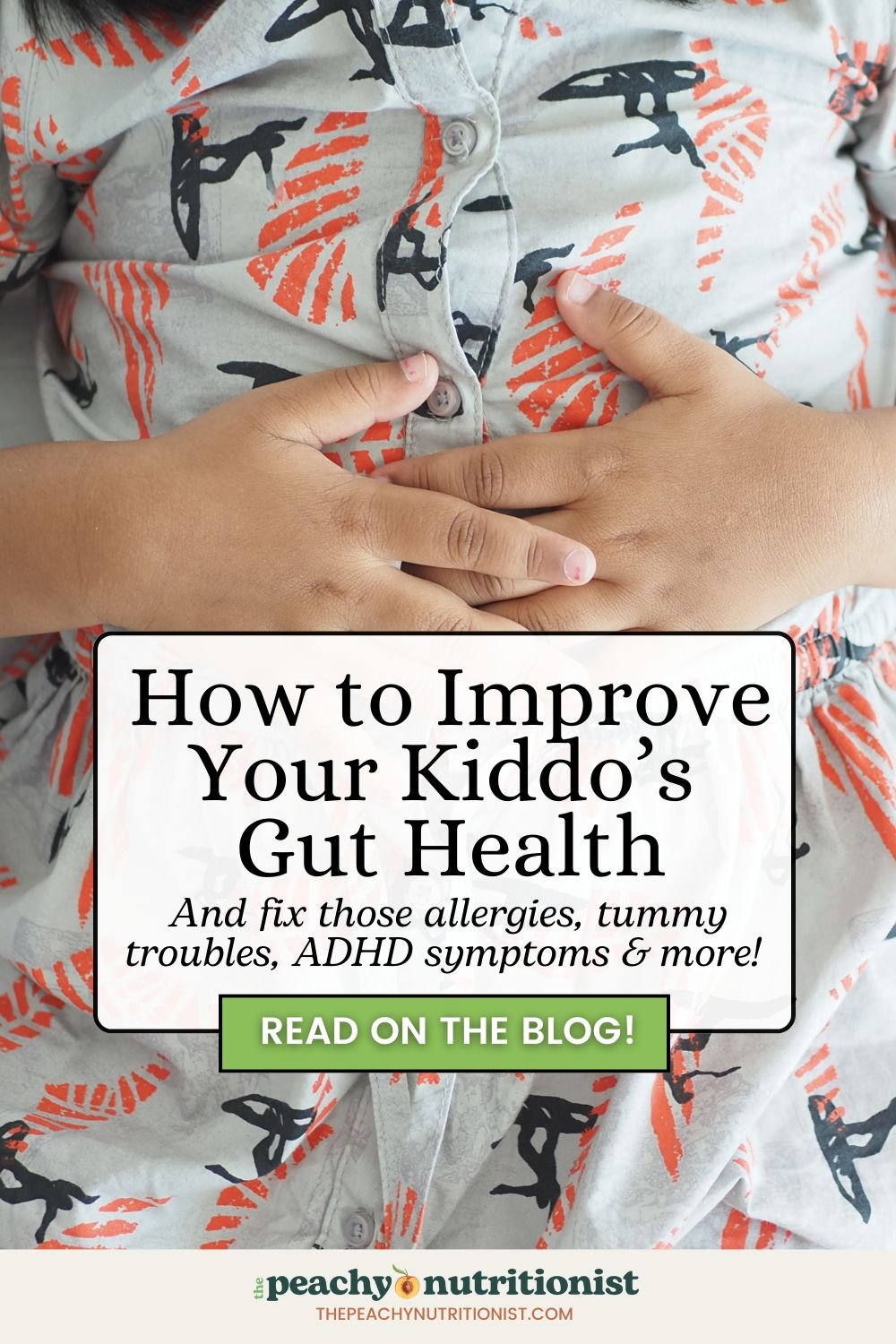
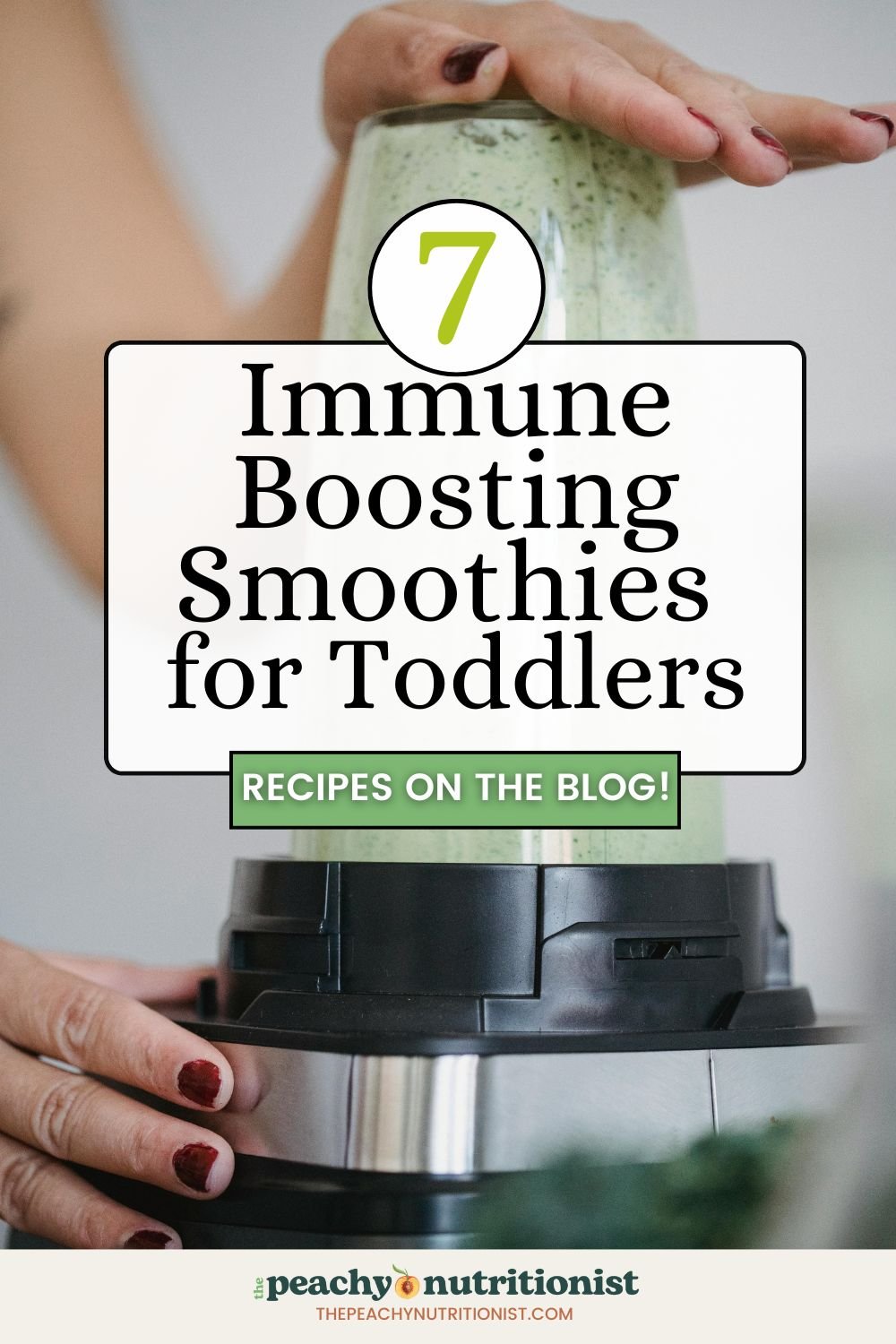
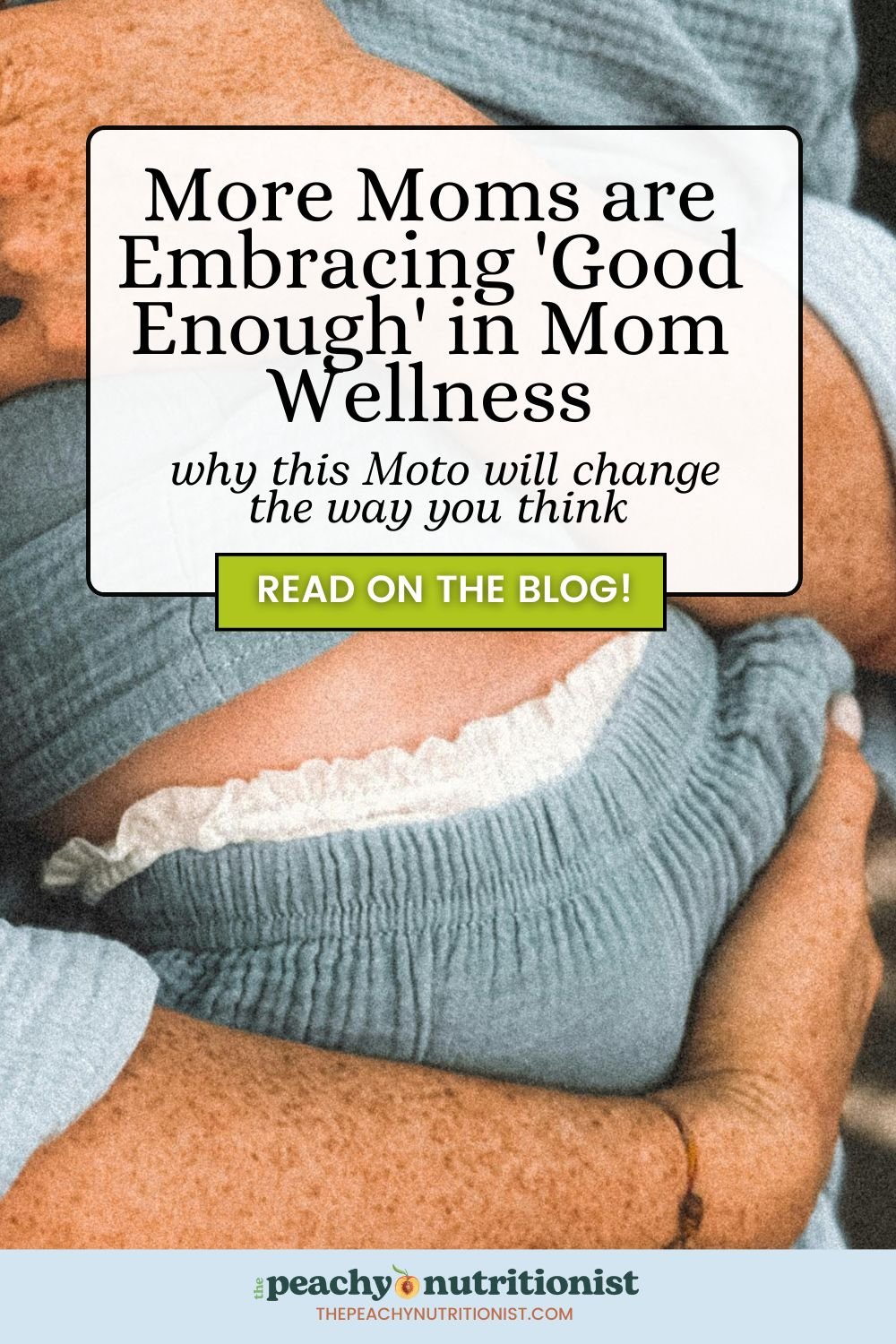
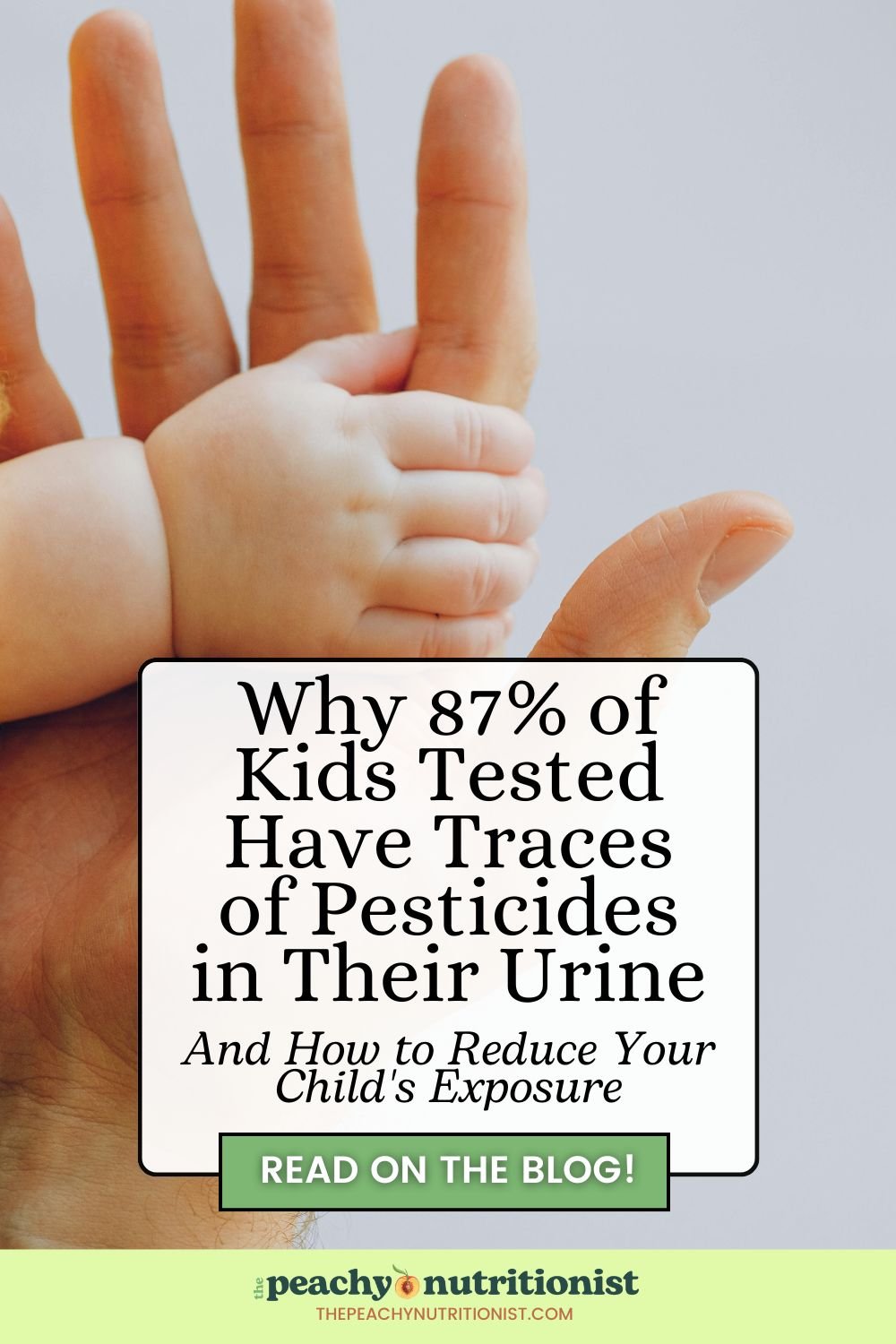
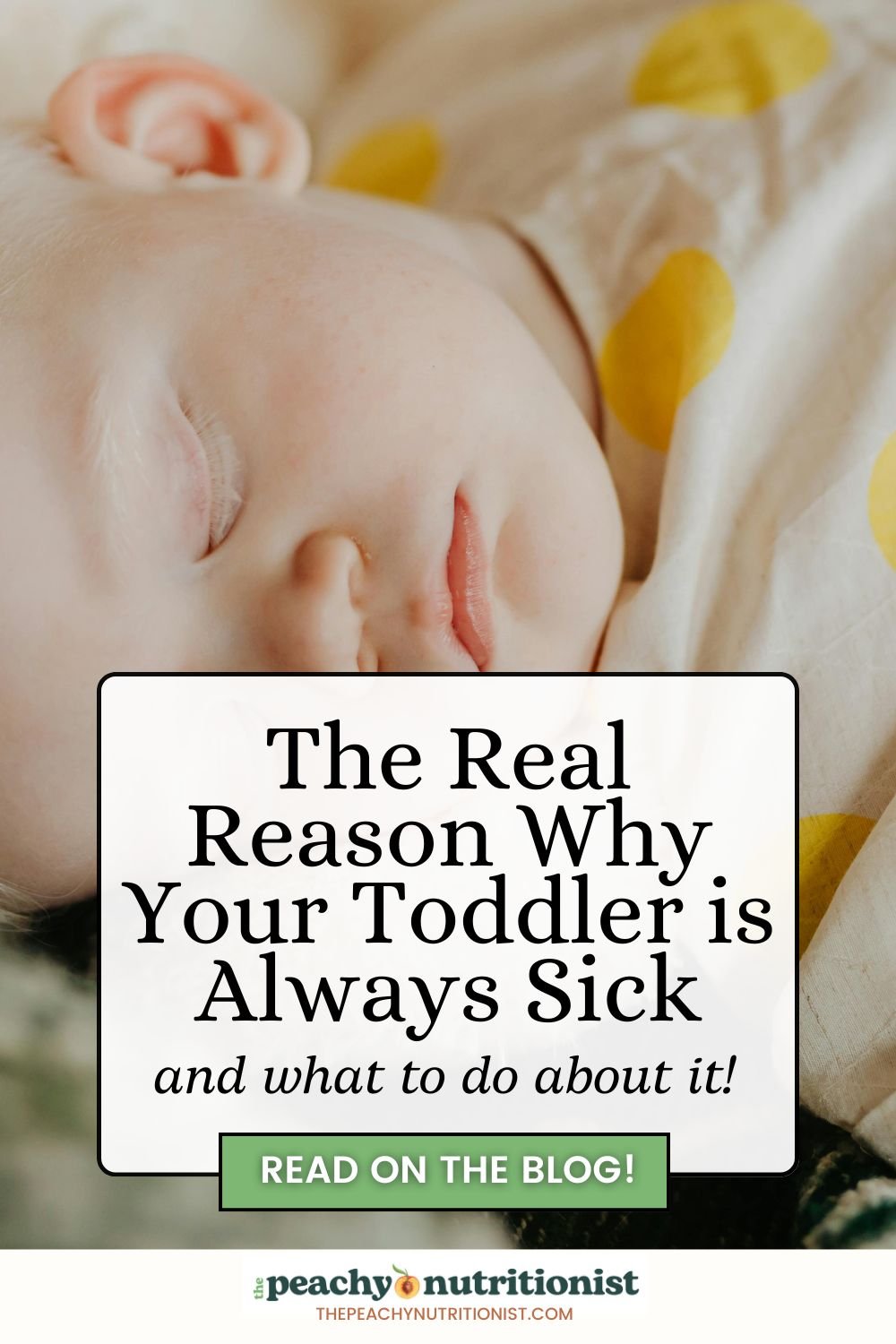
Need ideas for healthier Valentine’s Day candies for kids? Check these out! Links included!